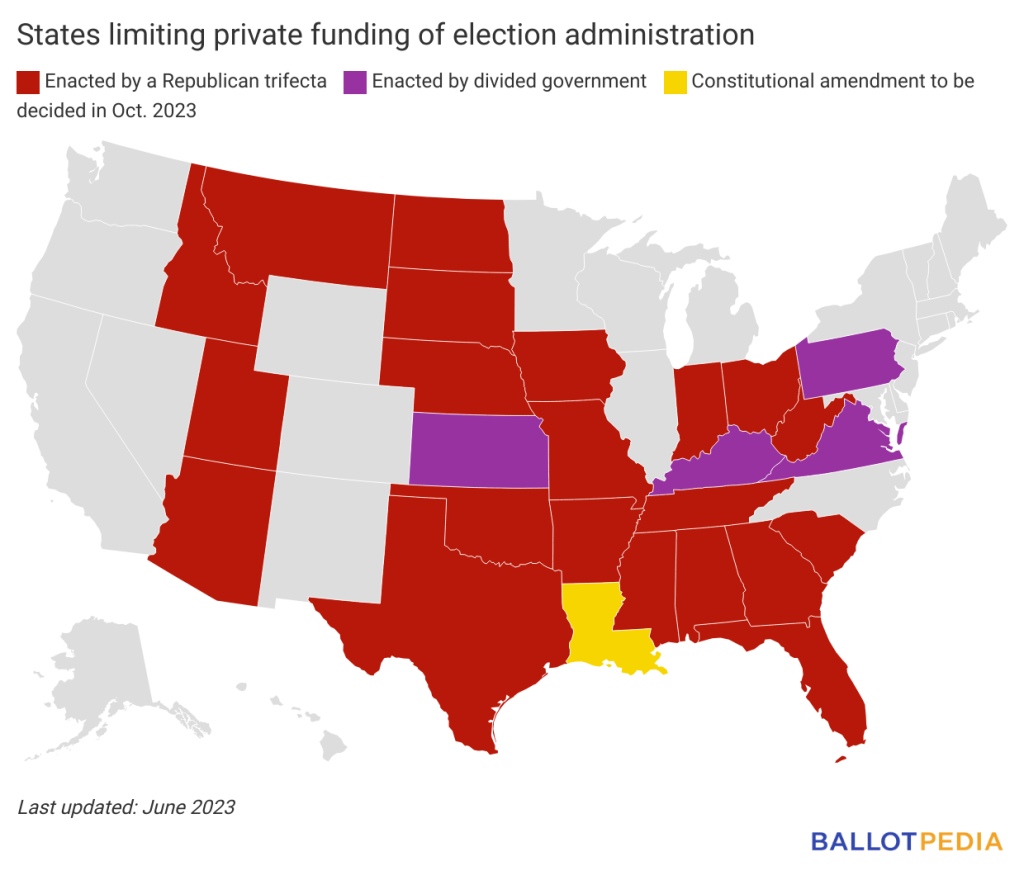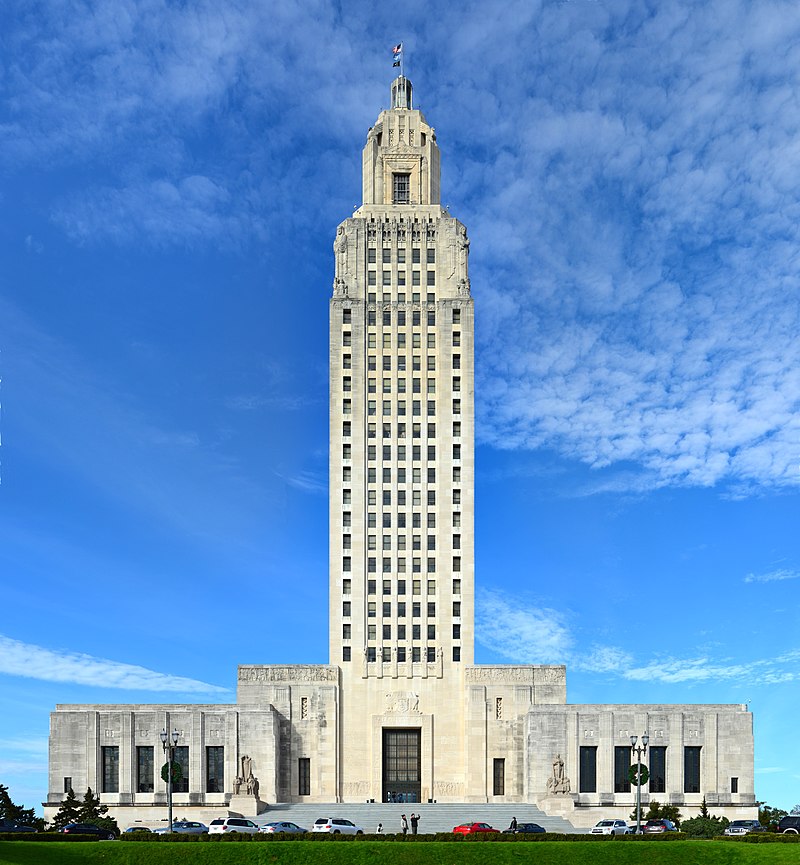Amendment 1, on the ballot for Oct. 14, 2023, in Louisiana, would ban private, non-governmental, and foreign funding of elections in the state. While there has been legislation in several states to ban private funding for elections, Louisiana Amendment 1 is the first time that voters will decide the issue.
In 2022, voters in Michigan decided on Proposal 2, which included multiple changes to election and voting policies. Michigan hadn't banned private funding for elections, although the Republican-controlled Legislature passed a bill that Gov. Gretchen Whitmer (D) vetoed. Proposal 2, however, added language to the Michigan Constitution that continued to permit private donations for election administration, provided that donations were not from foreign sources and there was a public disclosure process.
Louisiana Amendment 1 was passed during the 2023 legislative session. The following would be added to the Louisiana Constitution: "No funds, goods, or services donated by a foreign government or a nongovernmental source shall be used to conduct elections unless provided for in the election code and subject to restrictions provided by general law."
In the Louisiana House, 67 Republicans voted to pass Amendment 1; none were opposed. Three House Democrats voted for Amendment 1, and 28 were opposed. Both independent representatives voted against the amendment. In the Louisiana Senate, Republicans voted to send Amendment 1 to the ballot, and Democrats opposed the issue.
Before the general election on Nov. 3, 2020, Facebook CEO Mark Zuckerberg and his wife, Dr. Priscilla Chan, donated a total of $350 million to the Center for Tech and Civic Life (CTCL). Zuckerberg and Chan announced a first donation of $250 million on Sept. 1, 2020, along with a donation of $50 million to the Center for Election Innovation and Research (CEIR). The pair announced a second donation of $100 million to CTCL on Oct. 13, 2020.
On Facebook, Zuckerberg said the money was intended to "support election officials with the infrastructure they need to administer the vote — including voting equipment, PPE for poll workers, and hiring additional poll staff." According to CTCL, the group used the funds to provide grants to nearly 2,500 jurisdictions around the country during the 2020 election cycle.
The donations by Zuckerberg and Chan sparked debate about the use of private funding for election administration efforts. Following the election, some states introduced legislation related to this activity.
State Rep. Blake Miguez (R-49), who sponsored the amendment in the House, said, "With the passage of [the amendment], the Republican legislative supermajority in Louisiana took a strong step today towards prohibiting the use of foreign and private funds to pay for any part of our election system. In October, the voters of Louisiana will get a voice in strengthening election integrity in our beloved state." Ken Cuccinelli (R), former Virginia Attorney General and chairperson of the Election Transparency Initiative, said, "Elections should never be privatized in Louisiana or anywhere else, and we urge voters to ban ‘Zuckerbucks’ once and for all at the polls in October."
Democracy Docket, an organization that describes itself as a "progressive source for information, analysis and opinion about voting rights, elections, and democracy," said, "Should voters approve the ban in October, Louisiana will be the latest GOP state to enact such a ban. These measures are fueled by election conspiracy theories and could make chronic underfunding of our elections offices even worse."
As of August 2023, 25 states had enacted legislation to prohibit private funding for election administration. Lawmakers enacted all but one of these laws in 2021 or 2022; Montana enacted a ban this year. Twenty-one of the 25 states that have enacted legislation restricting the use of private funds for election administration had Republican trifectas at the time of enactment. Of the remaining four, three had Republican-controlled legislatures and Democratic governors, while in Virginia, Democrats controlled the Senate, and Republicans controlled the House of Delegates and the governorship.

Additional reading:



